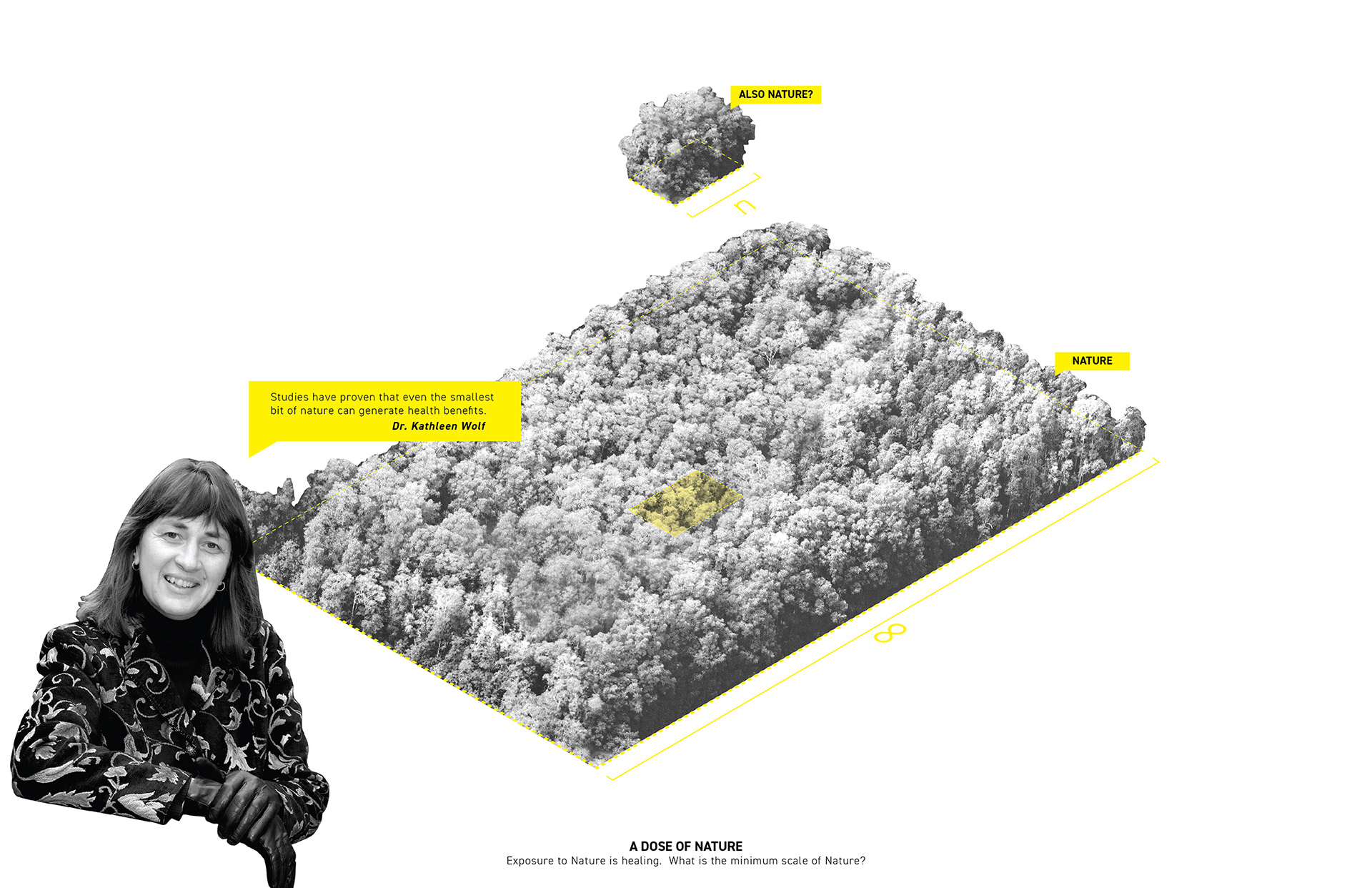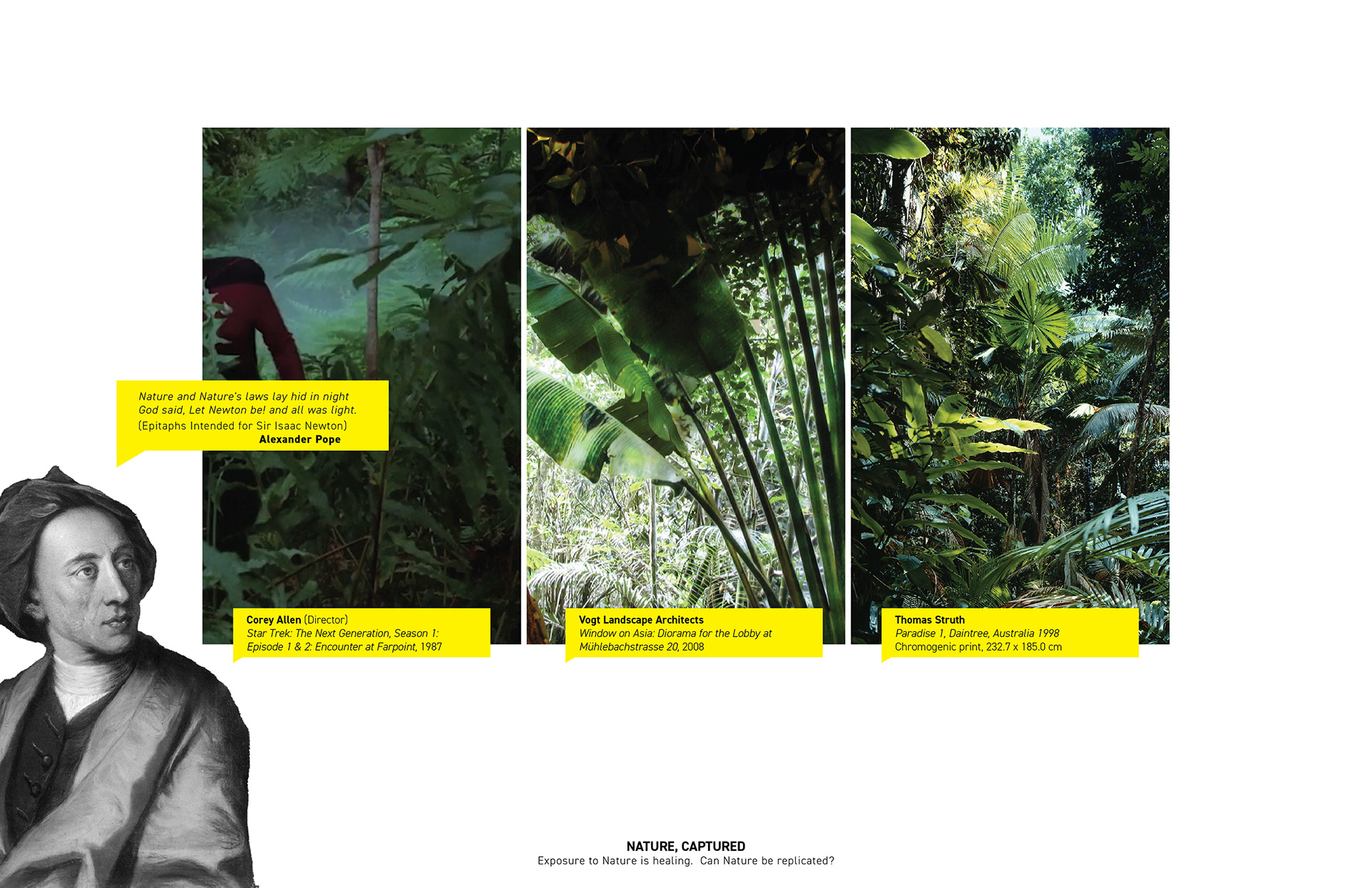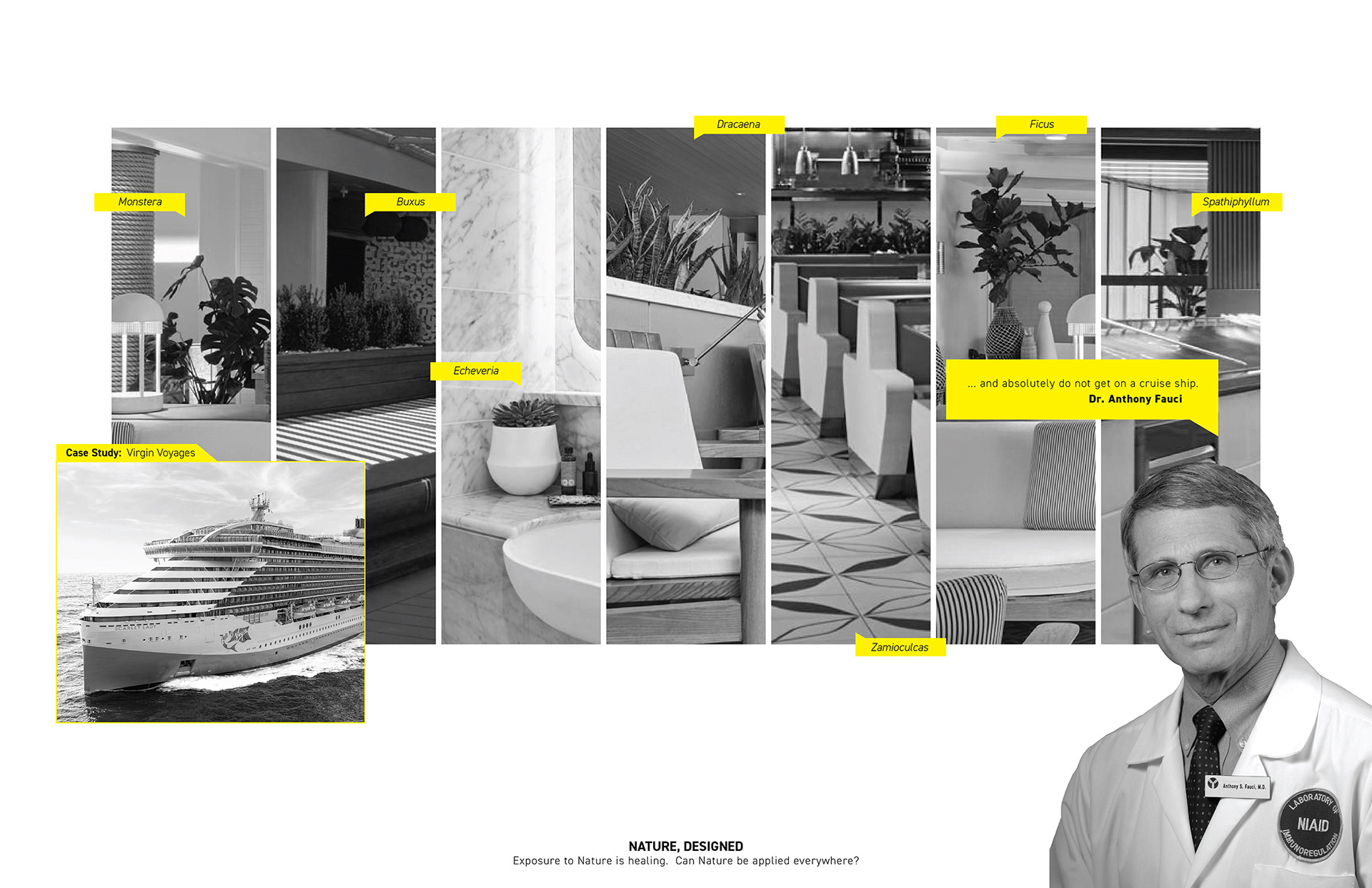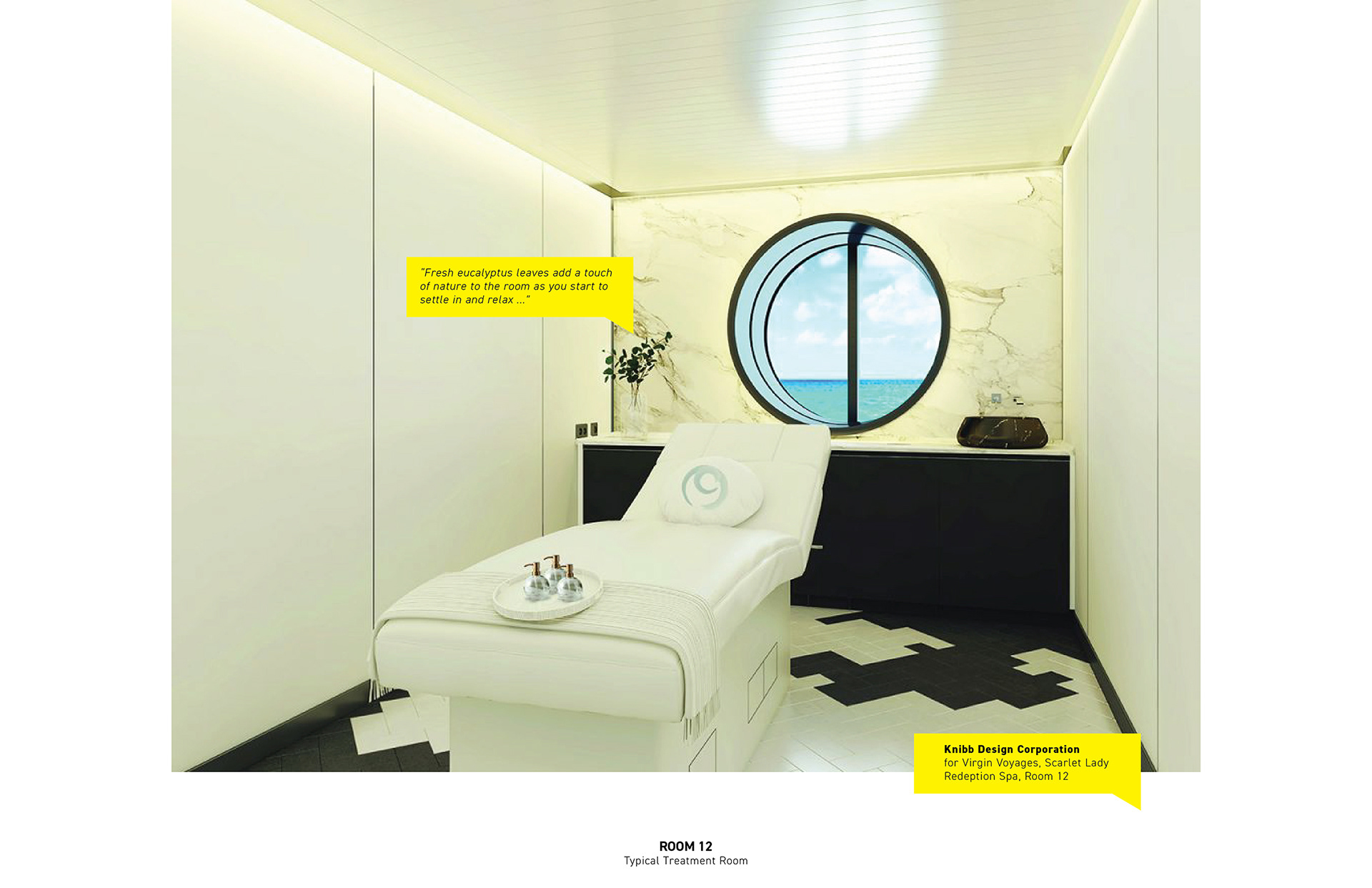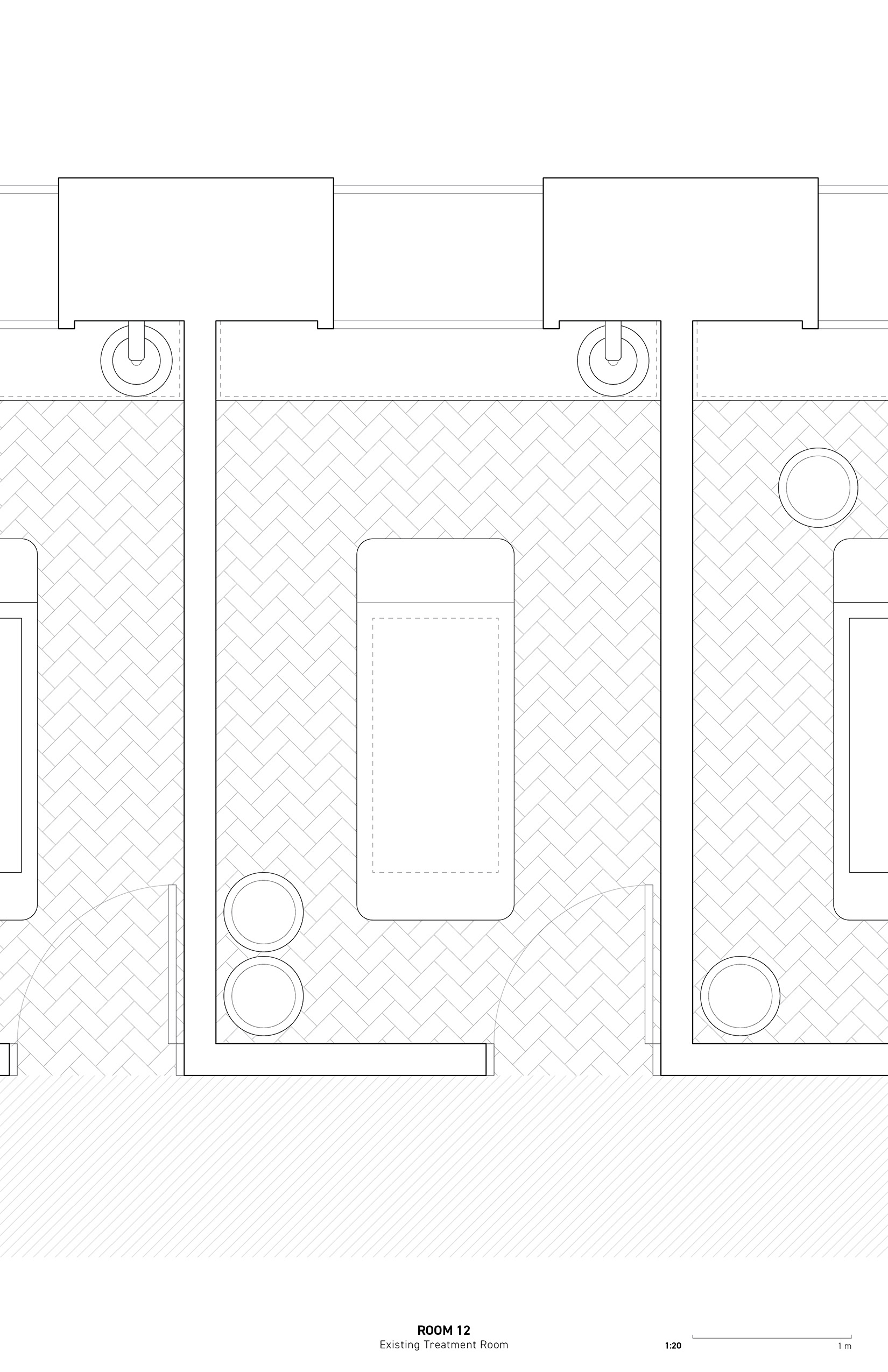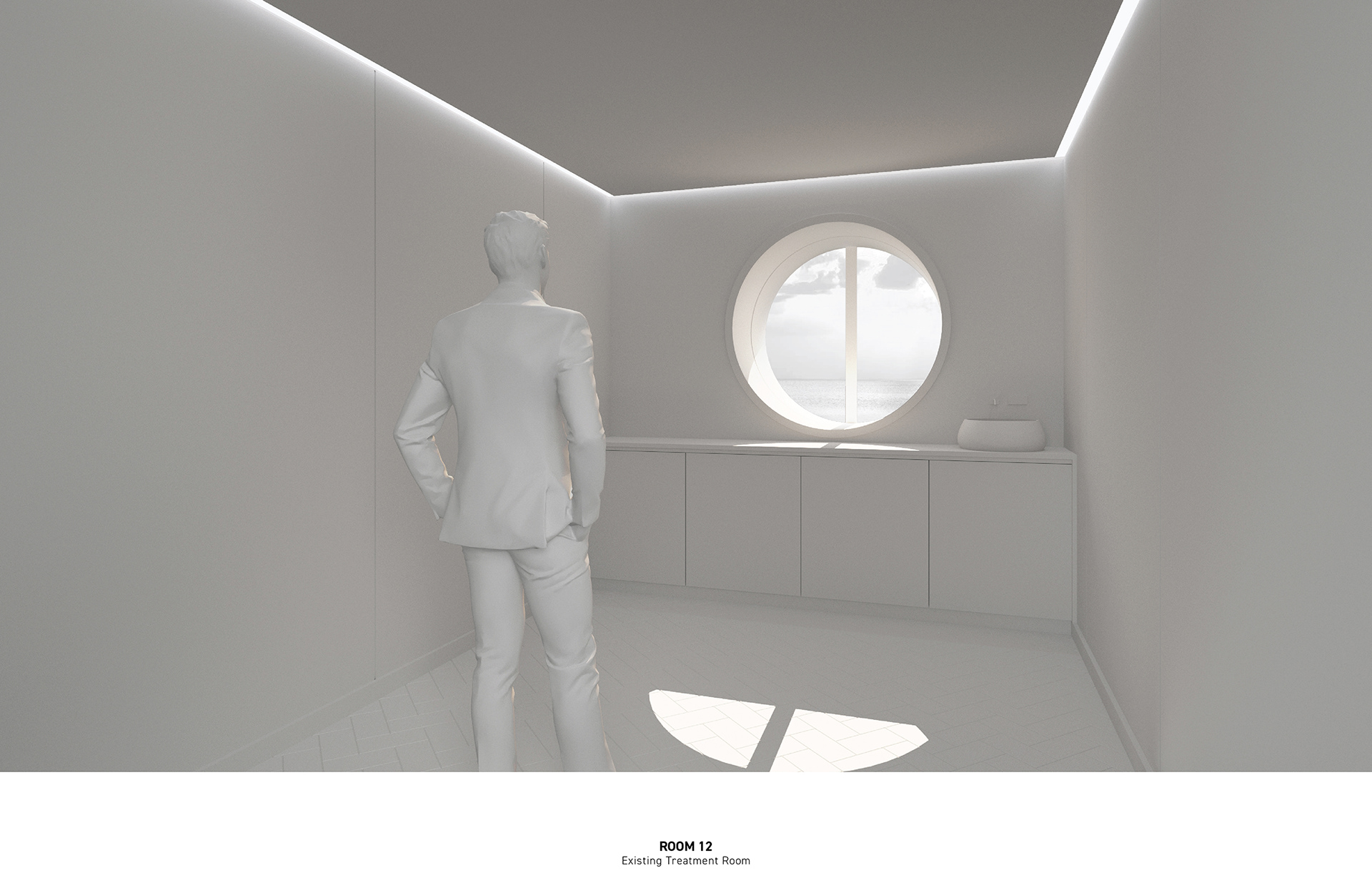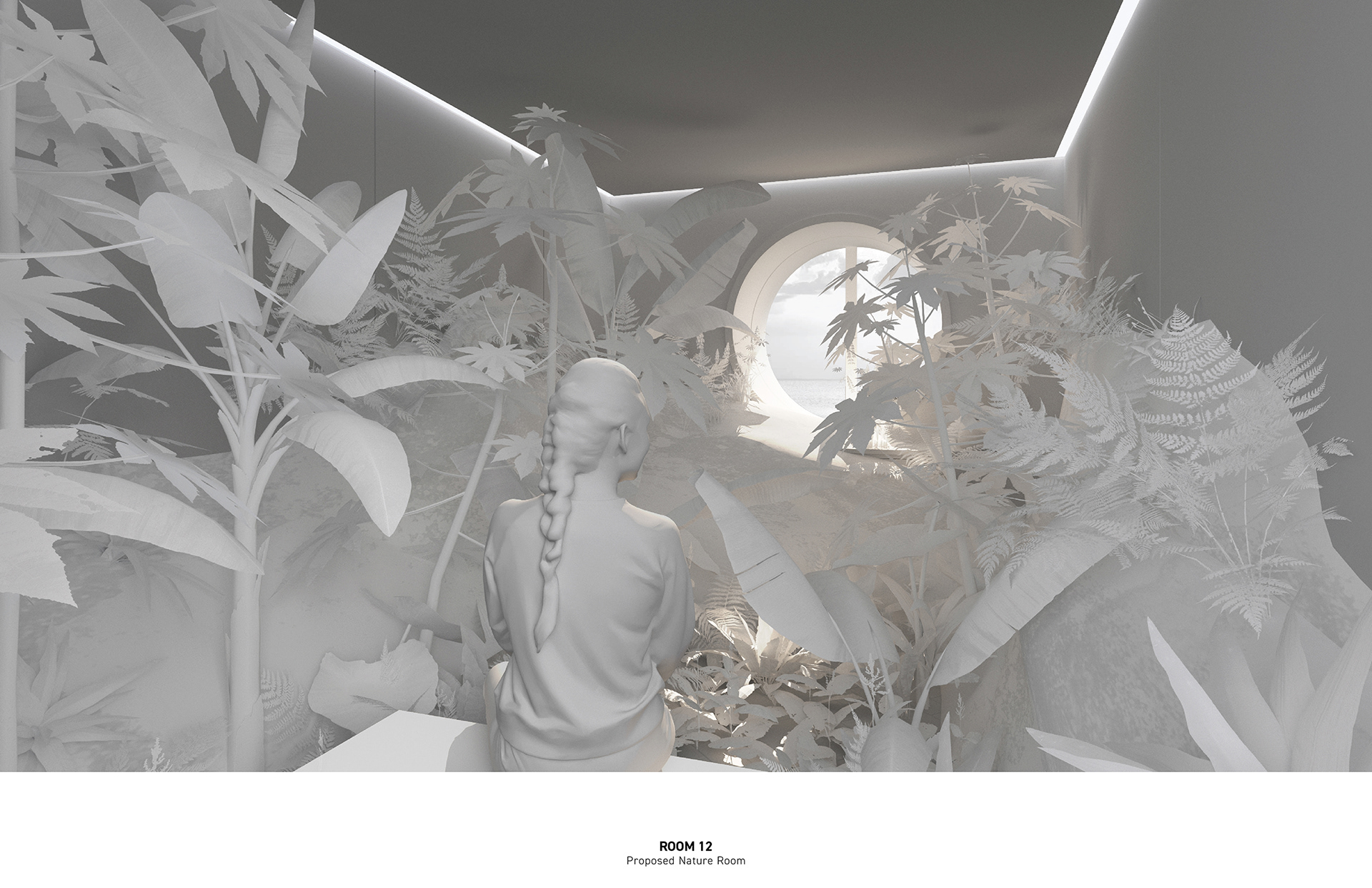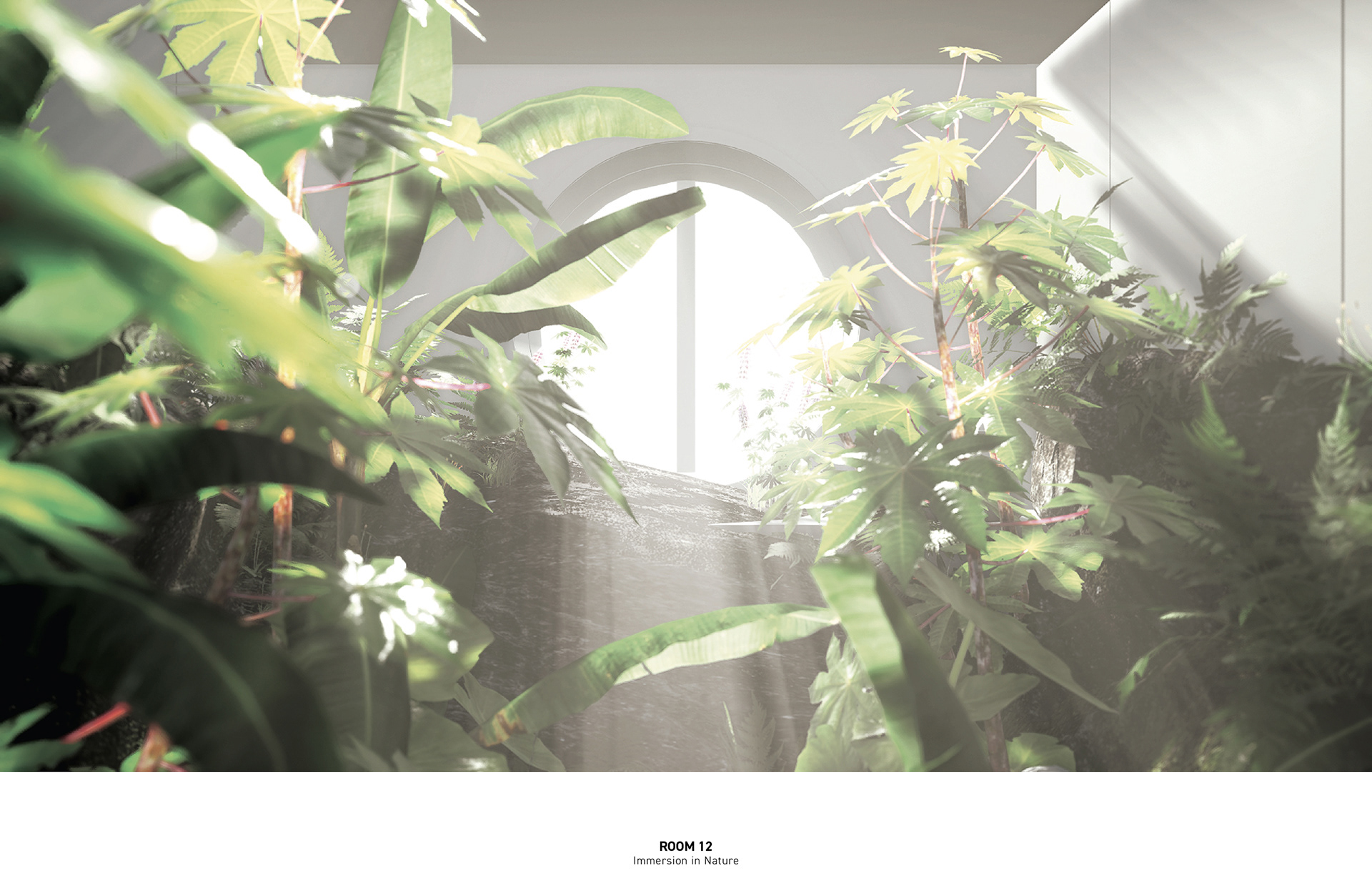Unnatural
The “healing garden” is a well-established reoccurring type in the field of landscape architecture. From physic gardens to outdoor spaces for healthcare facilities, a growing body of literature describes the practical design of these spaces. In addition, extensive research in the social sciences has established multiple relationships between landscape design and well-being. Specifically, the psychological benefits of exposure to green space have been well documented. Interaction with the environment as simple as looking at a tree has been shown to improve the mental health of the observer.[1] Generally, contact with Nature relates to such benefits as “reduced stress, improved attention capacity, facilitating recovery from illness, ameliorating physical well-being in elderly people, and behavioral changes that improve mood and general well-being.” [2] Importantly, while individuals are undoubtedly able to reap these benefits by active participation with or in the landscape, they can also receive these gains by observing landscapes from a distance.[3] These behaviours can be characterized as passive and indirect engagements with Nature.
Exposure to Nature and improved mental health are inextricably linked, and landscape design actions as simple as planting trees will correspond to psychological gains for individuals exposed to them. While the exact pathways by which Nature impacts an individual’s psychological state are not yet clarified, the positive impacts of Nature on mental well-being are undeniable.
But what is Nature? Can Nature be designed and built? Can Nature’s healing properties be captured and transmitted in small spaces?
Can a dose of Nature improve unhealthy environments? Can Nature exist in entirely artificial situations and without access to land? How would one design a healing garden for the cruise industry?
Can a dose of Nature improve unhealthy environments? Can Nature exist in entirely artificial situations and without access to land? How would one design a healing garden for the cruise industry?
Virgin Voyages’ first cruise ship, the Scarlet Lady, serves as a case study to help answer these questions. A garden built into the ship’s spa will explore the development of a new landscape type. The novel “Nature room” will complement the existing sauna, steam room, mud room, and salt room. Not only is Virgin Voyages building more ships for their fleet, but across the industry, the potential for healing gardens onboard ships remains understudied.
[1] Rachel Kaplan and Stephen Kaplan, The Experience of Nature: A Psychological Perspective (Cambridge University Press, 1989), 171.
[2] M.D. Velarde, G. Fry, and M. Tveit, “Health Effects of Viewing Landscapes – Landscape Types in Environmental Psychology,” Urban Forestry & Urban Greening 6 (2007): 210.
[3] Ibid., 210
